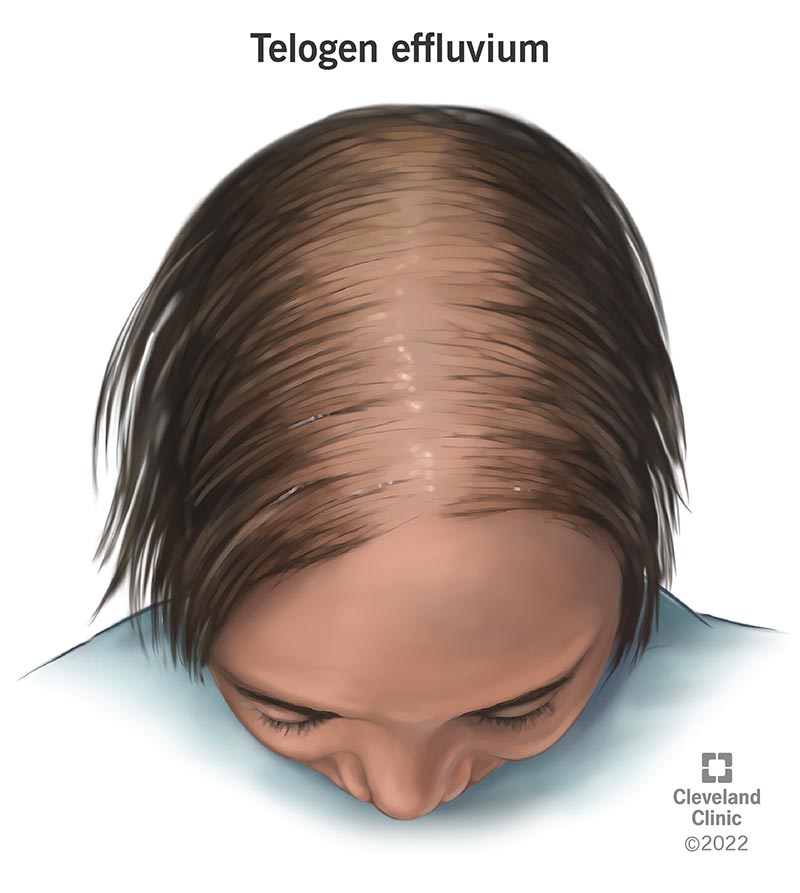News Blast
Your daily source for the latest news and insights.
Hair Today, Gone Tomorrow: What Your Strands Are Trying to Tell You
Uncover the secrets your hair is hiding! Explore the signs your strands reveal about health, stress, and more in our must-read guide.
Understanding Hair Loss: Common Causes and Solutions
Hair loss is a common issue that affects millions of individuals worldwide, and understanding its common causes is the first step towards finding effective solutions. Factors such as genetics, hormonal changes, medical conditions, and environmental influences play a significant role in hair thinning and baldness. Conditions like androgenetic alopecia, often referred to as male or female pattern baldness, are hereditary and can begin as early as in one's twenties. Additionally, stress, nutritional deficiencies, and certain medications can exacerbate the problem, leading to increased hair shedding.
Fortunately, there are various solutions available to combat hair loss, ranging from lifestyle changes to medical treatments.
- Diet: Ensuring a balanced diet rich in vitamins and minerals, particularly biotin, iron, and zinc, can promote healthier hair.
- Medications: Topical treatments like minoxidil and oral medications such as finasteride have proven effective for many.
- Hair Restoration: In more severe cases, procedures like hair transplants or laser therapy may be considered.

The Science of Hair Health: What Your Strands Reveal About Your Body
The condition of your hair offers a fascinating window into your overall health. Healthy hair typically appears shiny, strong, and resilient, while its opposite can indicate underlying issues within the body. For instance, excessive hair shedding might suggest nutritional deficiencies, particularly a lack of essential vitamins such as biotin, vitamin D, and zinc. Furthermore, changes in hair texture, such as brittleness or increased oiliness, can hint at hormonal imbalances or thyroid issues. By paying attention to these subtle changes, you can gain insights into your body's internal workings and make proactive decisions about your health.
Moreover, the science of hair health is linked to a variety of bodily functions and conditions. Hair growth cycles can be affected by stress or anxiety, as well as medical conditions like alopecia or autoimmune disorders. Each strand of hair is a reflection of not just genetic predisposition but also lifestyle factors such as diet, hydration, and environmental exposure. To maintain optimal hair health, consider adopting a balanced diet rich in antioxidants, staying hydrated, and reducing stress through regular exercise and relaxation techniques. By revitalizing your hair, you also promote an overall sense of well-being and vitality.
Are Your Hair Strands Sending Warning Signals? Signs You Shouldn't Ignore
Your hair is more than just a part of your appearance; it can serve as a warning signal for your overall health. If you notice an increase in hair fall or strands breaking easily, it could indicate underlying issues such as nutritional deficiencies or hormonal imbalances. Ignoring these signs could lead to more serious problems down the line. Look out for common indicators such as:
- Excessive shedding
- Thinning hair
- Dryness and brittleness
Another critical sign to watch for is the change in your scalp's health. If you experience persistent itching, redness, or flakes, this could point to conditions such as dandruff or scalp psoriasis. Pay attention to the texture and appearance of your hair as well; dull and lifeless strands may suggest that your hair isn't receiving the care it needs. Remember, your hair can be a direct reflection of your body's health, so don't hesitate to consult a professional if you notice any concerning changes.